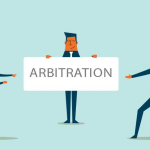Do the stories of how hard it is to establish a Supreme Court practice stop you from taking the first step?
Are you a trial or high court lawyer who sometimes wonders what it would take for you to become a Supreme court lawyer?
Are you practicing in a city that is far from Delhi and envy the lawyers in Delhi because they can start arguing before the Supreme Court early while you find it very hard to uproot yourself and relocate to Delhi to build a Supreme Court practice?
Do you find it hard to differentiate yourself with scores of other lawyers in a competitive market?
Don’t deny it, almost every lawyer dreams of establishing a Supreme Court practice, and yet most of them never even get to attempt it.
Who does not want to work on high-profile matters which get covered in legal and mainstream media?
Who does not want to engage the best senior advocates of the country to argue matters for their clients?
If you are struggling to figure this out, let’s help you to become an Advocate-on-Record at the Supreme Court.
Every advocate cannot file petitions at the Supreme Court in his or her own name – in order to file petitions at the Supreme Court, you must be an ‘Advocate-on-Record’.
It adds tremendous credibility to your name in any part of the country, if you write that you are a ‘Advocate-on-Record of the Supreme Court of India’, popularly known as AoRs.
There are 2777 odd AoRs in India. They are all members of the Supreme Court Advocates on Record Association and have to pass a difficult exam and jump through a few hoops to get there.
When you are an AoR, clients can trust you more easily. They know that they have one person in their corner who is a recognised lawyer at the highest judicial forum in the country.
When your credibility is higher, you get more important matters and you can charge more as well.
An Advocate-on-Record needs to have an office within a certain distance from the Supreme Court, but while satisfying that criteria, practically you could have your practice in a different city or even in multiple cities as well if you wanted.
The difficult part is however cracking the AoR exam.
How difficult is it?
How do you prepare for it?
What do you have to do to qualify to write this exam?
What do you have to study?
What kind of questions came in the past?
What is the style of answer writing that is appreciated?
Do you want to have all your answers about the AoR exam answered?
Do you want to know how to start building your Supreme Court practice?
If you are a lawyer with more than 4 years of experience and interested in becoming an AoR, we have a bootcamp for you where you can begin your journey and figure out an actionable plan. It’s a 3 day bootcamp which is scheduled from 10th to 12th April between 6pm to 9 pm.
Register right now, it is online and free, you can attend from anywhere.
https://lawsikho.com/supremecourtpracticebootcamp
For those who have already registered, congratulations!
You have taken the first step towards realising your dreams. See you there at the bootcamp.
The bootcamp will be conducted by Ramanuj Mukherjee (CEO & Co-Founder, LawSikho), Abhyuday Agarwal (COO & Co-Founder, LawSikho) & Yash Vijayvargiya (Content head, LawSikho)
What we will cover over 3 days:
Day 1: Ambition and goal-setting
- What are the advantages of being a Supreme Court lawyer? What are the benefits for trial court lawyers, High Court lawyers and lawyers outside Delhi who do not practice at the Supreme Court?
- What are the myths about Supreme Court practice that prevent young lawyers from succeeding?
- Why should you attempt the AoR exam? How can it improve your credibility and reputation before clients, bar and the bench? How does it remove uncertainty of getting work?
- Why do aspirants fail to crack the AoR exam? What challenges do they face?
- What are the eligibility requirements for writing AoR examination?
- When should you start preparation to maximise your chances of cracking the exam?
- How to start preparation for the AoR Exam
- Syllabus of the AoR Exam
- Exam format and past years’ paper analysis: Types of questions, difficulty level, time, overview of competition, pass criteria and re-attempts
- Eligibility for cracking AoR Exam and cut-off dates for 2021 and 2022
- What happens after you clear the AoR exam? What are the next steps?
Day 2: Strategy Creation
- How to fulfil the criteria of having a chamber near the Supreme Court?
- Roadblocks faced by lawyers attempting the AoR exam for the first time
- Common preparation mistakes
- How many hours should you study everyday
- How to create a daily study plan
- How to measure progress
- How many mocks should you attempt?
- How to manage your practice alongside study for AoR exam
- What are the books, case laws and other resources that you need
- How to divide your time amongst multiple subjects
- How to prepare a subject-wise preparation strategy
- How to prepare foolproof notes
- How to find an AoR with 10 years’ standing for satisfying training criteria if you are not in Delhi
- Study plan and techniques for AoR exam syllabus
- Drafting
- Practice and Procedure
- Professional Ethics
- Leading Cases
Day 3: Execution
- 5 study hacks to accelerate your preparation for each subject
- Tips and strategies from toppers of AoR exam
- How to practice drafting for the AoR exam
- How to get some practical experience to prepare for Drafting and Practice and Procedure more effectively
- What qualifies as a good answer in the Leading Cases paper?
- How to write analytical answers or your own opinion
- How to develop your handwriting speed
- How to obtain feedback and improve over time
- 2 month roadmap for preparation for the June 2021 exam
- 1 year study plan if you are attempting the exam in 2022
- What should your last-minute revision strategy look like?
- What to do if you fall behind schedule
- What if you fail to clear the AoR exam? What should your strategy be?
- What happens once you crack the exam? What are the next steps?
- How to find good seniors to work with
- How to acquire your own clients and network effectively as an AoR
- How to engage reputed senior advocates and brief them
- When to argue in the court yourself
- How to build your face value and credibility before senior members of the bar and the bench
- Future career paths for Advocates on Record – becoming a Senior Advocate or a Supreme Court Judge
To attend, register here:
https://lawsikho.com/supremecourtpracticebootcamp
If you want to be notified about other workshops and webinars conducted by LawSikho on Supreme Court Practice, please join the Telegram or WhatsApp group below:
Telegram Group: https://t.me/joinchat/VlcPkD6lTNt7G8iK
WhatsApp Group: https://chat.whatsapp.com/KGIK7Gz2z6c6yoxrTWvZtD
Students of Lawsikho courses regularly produce writing assignments and work on practical exercises as a part of their coursework and develop themselves in real-life practical skills.
LawSikho has created a telegram group for exchanging legal knowledge, referrals, and various opportunities. You can click on this link and join:
https://t.me/lawyerscommunity2
Follow us on Instagram and subscribe to our YouTube channel for more amazing legal content.






 Allow notifications
Allow notifications
